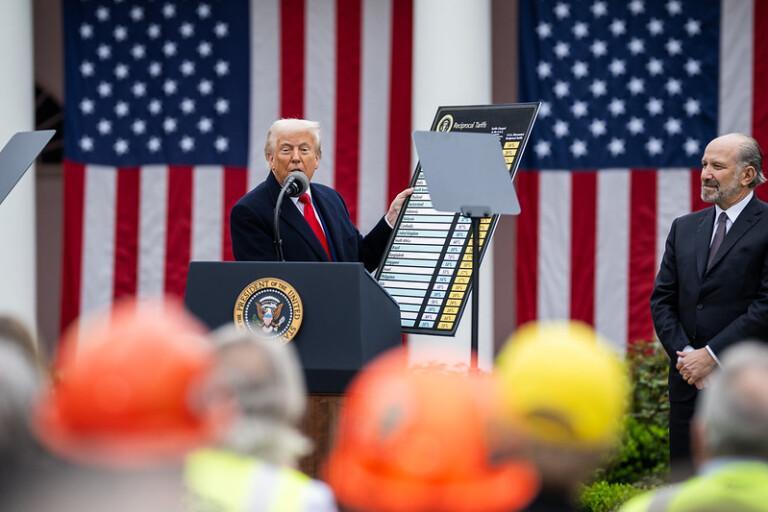
Even though bilateral relations have warmed somewhat, Japan has failed to convince Russia to make concessions with regard to the territorial issue of the Northern Territories/South Kuril Islands, or to cut back its cooperation with China.
Meeting Russian President Vladimir Putin on the margins of the Eastern Economic Forum in Vladivostok in early September, Japanese Prime Minister Shinzō Abe continued his diplomatic ‘charm offensive’ to improve relations with Moscow. The Japanese delegation signed a number of framework agreements and memorandums of understanding relating to economy and trade, but Abe had two further objectives.
First, he aimed to inch closer to settling the territorial dispute over the Northern Territories (referred to as the South Kuril Islands by Russia), seized by Russia at the end of the Second World War and under Russian control since then. For Japan, this constitutes a precondition for discussing the signing of a peace treaty with Russia, an issue that remains unresolved since the end of World War II. Second, Tokyo is becoming increasingly wary of an assertive China and sees closer ties with Moscow as a way to slow down the pace of Russian-Chinese cooperation.
Both issues have been high on Abe’s political agenda since assuming office at the end of 2012, but the territorial issue and its link with a peace treaty in particular is highly politicized due to public opinion concerning what Japan sees as Russia’s illegal annexation of the islands in 1945.
Japan’s attempts to achieve a breakthrough in relations with Russia can be traced back to 2014. Initially Moscow responded positively. Abe was a guest of honour at the opening of the Sochi Olympic Games and both states agreed on regular consultations between foreign and defence ministers (2+2 format). The Russian-Western conflict over Ukraine and Japan’s joining of sanctions against Russia prevented further progress, however, even though Abe continued to argue for constructive engagement with Russia and dialogue with Putin.
Tokyo made a new attempt to woo Moscow in late 2016, with Prime Minister Abe intensifying his personal diplomacy directed towards the Russian leader. Putin’s visit to Japan in autumn 2016 did not bring any substantial results apart from the agreement to promote the joint economic development of the contested islands.
The Japanese side has continued its diplomatic offensive. As a result, both sides agreed to cooperate on the denuclearization of the Korean Peninsula and increase security cooperation. Japan, eager to ensure its energy supply without overreliance on the Middle East, invested in Yamal-LNG production in Northern Russia, although the scale of its contribution pales in comparison to that of China (US$ 200 million versus US$ 10 billion).
During a plenary at the Eastern Economic Forum, Putin unexpectedly and unilaterally broached the idea of concluding a peace treaty with Japan by the end of the year, “without any preconditions”. However, Japan will likely stick to the precondition that the territorial issue needs to be resolved before a peace treaty can be signed.
Russia clearly has the upper hand. A key feature of Russia’s policy towards Japan is its relatively reactive character that capitalises on Japan’s determination to regain the South Kuril Islands. Moscow is awaiting Tokyo’s offer and not hesitating to exert political-military pressure at the same time. Russia’s primary goal is to obtain Japan’s economic investment and assistance without any preconditions related to the territorial issue and without making any concessions. Putin’s proposal of a peace treaty might even be aimed at placing the territorial issue on the back burner. Furthermore, Russia has increased its military presence on the contested islands and is not willing to weaken its ties with China. Moscow began the Vostok-2018 exercises on the same day as the opening of the Vladivostok Economic Forum, attended by Prime Minister Abe, and invited China to participate.
A major reason for Moscow’s uncompromising policy is the belief among the Russian ruling elite that Japan has little or no strategic autonomy. Tokyo remains heavily influenced by the US, and is dependent on the latter with regard to security. Although Japan’s room for manoeuvre increased in the aftermath of Donald Trump’s election as president, the strategic alliance between Japan and the US remains in place.
Moreover, Russia does not seem capable of addressing one of the most pressing Japanese concerns, namely the nuclear and missile programme pursued by North Korea. Japan’s response in the form of deploying another layer of missile defence, the Aegis Ashore system, is serving to deepen Russia’s negative stance.
Public opinion is another factor. According to a 2016 poll by the Levada Center, 78% of Russian respondents were against transferring the islands to Japan, while 55% considered that a return would affect Putin’s credibility. 56% believed that keeping the islands is more important for Russia than signing a peace treaty with Japan and acquiring Japanese investments and technology.
A Japanese opinion poll conducted by the Mainichi newspaper in the same year, on the other hand, showed that 57% of respondents thought that Japan should be flexible in its negotiations on the issue with Russia, and not insist on the return of all four islets.
Russia’s energy ties with China pose an additional obstacle to closer economic cooperation with Japan. Moscow would find it difficult to redirect energy streams from China to Japan. Even if the latter were able to absorb the increase in oil and gas deliveries, Russia lacks both infrastructure and free resources, given how much is already contracted on a long-term basis by China.
Finally, the Japanese investment in the Russian Far East’s economy would matter much more if the Kremlin cared more about the quality of life of the RFE’s inhabitants than about the strategic importance of the region.










